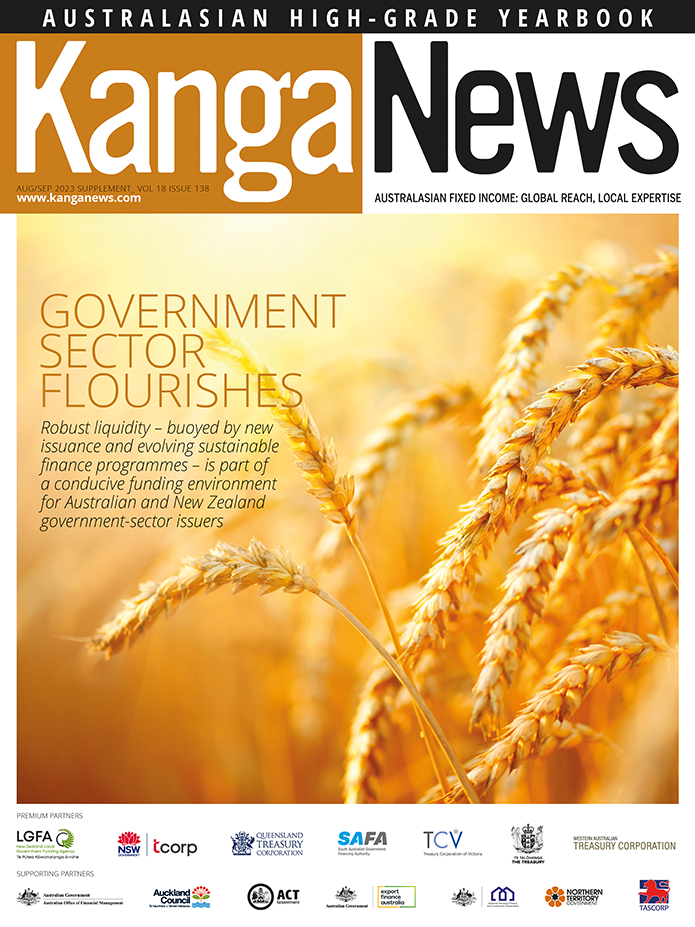
A refreshed approach to retail corporate bonds
Jason Falinski, federal member for Mackellar and chair of the House of Representatives’ standing committee on tax and revenue, discusses the committee’s inquiry into the Australian corporate bond market and how he hopes it will stimulate retail issuance.
The committee’s report was published in October 2021. Is there any indication of what the government is likely to do with its recommendations?
Initially we thought the report would be around tax, but it mostly covers corporate-governance reform and making it easier to issue corporate bonds. This includes making sure there are efficiencies in the way bonds are issued and the information needed, including not needing a full prospectus for listed companies as well as giving companies the capacity to buy back bonds and reissue them at a higher price if the market has substantially moved.
What Australia really needs to do is adopt the New Zealand framework. Any reasonable assessment would say Australia should have a larger corporate bond market than New Zealand, but theirs is broader and deeper with lots of retail investment. This makes retirement income in New Zealand more predictable, better and safer.
You mention an evolution between the initial terms of reference and what the report ultimately concluded. What led to this change?
The second question we asked was ‘why do we not have a major corporate bond market?’ We realised it is a corporate-governance issue – the legal frameworks work to stop the issuance of corporate bonds in the Australian marketplace.
When we started, we assumed the major problem was tax: that it was discouraging issuance and investment. While there was some evidence of this – as outlined in recommendations nine, 10 and 11 – as the enquiry went on these became third-order issues compared with the bigger corporate-governance and legal-framework issues we uncovered.
Is your goal full implementation of all 12 recommendations and how hopeful are you that it will happen?
I have a very firm view that, if all these recommendations are implemented, over time we will see a significant shift in the amount of bonds issued in the Australian market. With these recommendations, I believe international markets would begin to see Australia as a logical place to issue corporate bonds. This is where I ultimately want to get to, and I think full implementation would see it happen.
While each of the recommendations is relatively uncontroversial, one difficulty is prioritisation. The government has had to do a lot in the last two years. We have been focused on a pandemic and a lot of things have backed up.
Another challenge will be inertia from regulators like the ASX, ASIC [the Australian Securities and Investments Commission], APRA [the Australian Prudential Regulation Authority] and large institutional investors like superannuation funds. They do not like the type of issuance we are discussing because it is mark-to-market – they prefer unlisted funds they can value off market.
Some of the report recommendations can be done overnight. There are some where Treasury will need to consult with regulators like ASIC and trading platforms like the ASX – which is fair and appropriate. But we should not hold up the ones that can be done straight away.
We need to put pressure on Treasury and ASIC to get on with it. For example, ASIC is now in its seventh year of a one-year review into cryptocurrency and has not started on corporate bonds.
ASIC is the key regulator in this space – how do you see it fitting in?
The two best examples of this are its attitude to cryptocurrency and retail corporate bonds. ASIC’s response is it would prefer no-one invest in these things. It takes a very poor philosophical approach to investment and is a barrier to efficiency in our capital market.
The report talks favourably about the New Zealand corporate bond market. It is true that New Zealand has largely amalgamated institutional and retail demand, but it still has undersupply of credit. Do you have a view on issuers’ overall need – or desire – to access retail liquidity?
The crazy thing is that in Australia we use hybrid instruments as a proxy for retail corporate bonds. There is nothing wrong with hybrids per se, but a pure form of corporate bonds would have a massive advantage for developing a broader and deeper capital market.
There are also downstream effects. One of the big issues in Australia, in my view, is that we strangle entrepreneurship. We make it very difficult for people to develop and build businesses. One of the primary reasons for this is access to venture capital.
The reason there is not a larger pool of venture capital in Australia – once again in my view – is that there does not need to be. We do not have competition in the institutional capital market, which corporate bonds would provide.
With the appropriate legal frameworks, instead of tapping banks or the equity market companies could go directly to retail or institutional investors through bond issuance, also freeing up capital downstream for more venture capital and entrepreneurship. It would provide the rich mosaic that exists in the US but not Australia.
Has any work been done, by your committee or others, on the likely revenue impact of the tax-related recommendation? Is the idea to equalise incentives between bond coupons and equity dividends?
No work has been done to calculate the revenue impact as yet. I suspect Treasury will say it will cost millions of dollars, maybe even tens of millions of dollars. But once it is implemented, it will raise just as much. The way this work gets done never looks at second-order effects.
At the moment we are getting tax back on virtually nothing. If we equalise it at 17 or 18 per cent we would get a market operating that currently does not exist. It would be positive overall.
How difficult could the tax reform be to enact?
For whoever gets elected at the next election, I think there will be a lot of work to do on genuinely talking about what areas of commonality there are in reforming the tax system.
The Paul Keating government – which was without a doubt the biggest tax-reforming government since federation – did almost all its tax reform with the support of the opposition. If anything, the opposition was urging it to go further. We need to create this environment. It may not happen in the next year, or even the next three years – but the point is we need to begin.
What we are doing at the moment is discouraging productivity and entrepreneurship. We need to grow our way out of the debt accumulated due to COVID-19 and this can only be done with reforms to the tax system. They would have to be big, in many cases, but it would be good to have an honest conversation and get the process started.
Your report also recommends reviewing the retail licensing regime for rating agencies. How confident are you the regime could be amended in such a way as to persuade the main rating agencies to seek retail licenses?

HIGH-GRADE ISSUERS YEARBOOK 2023
The ultimate guide to Australian and New Zealand government-sector borrowers.








